Who is eligible to receive the COVID-19 vaccine in the United States?
COVID-19 vaccines are approved for children and adults 6 months and older. At Children’s National, we are continuing to follow the vaccine schedule recommended by the American Academy of Pediatrics. Follow the link below for more information:
AAP Immunization Schedule | Red Book Online | American Academy of Pediatrics
Children 6 to 23 months old are at high risk for severe COVID-19 infections. All children 6 to 23 months old should receive the current COVID-19 vaccine.
- The number of doses needed depends on the number of COVID-19 vaccine doses a child has already received.
- Some children who are immunocompromised may need additional doses.
Children 24 months to 18 years old who are at high risk for severe COVID-19 infections should receive one dose of the current COVID-19 vaccine. The following individuals are considered high risk:
- Individuals with medical conditions that make them high risk for severe disease (see Table below)
- Individuals who have never received a COVID-19 vaccine
- Individuals who live in long-term care facilities or other settings in which residents live in close quarters
- Individuals with household members who are at high risk for severe COVID-19 infections
| Medical conditions and treatments placing individuals at high risk for severe COVID-19 infections with common examples |
| Condition or Treatment |
Common Examples |
| Lung and breathing disorders |
Asthma or reactive airway disease |
| Chronic lung disease of prematurity |
| Children who have a tracheostomy or need a ventilator |
| Heart disease |
Congenital heart disease |
| Gastrointestinal disorders |
Children who need a feeding tube |
| Inflammatory bowel disease (Crohn’s disease or ulcerative colitis) |
| Liver disease |
Chronic liver disease |
| Hematologic disease |
Sickle cell disease |
| Metabolic disorders |
Diabetes |
| Obesity |
BMI ≥ the 95th percentile in children |
| Neurologic and neurodevelopmental conditions |
Cerebral palsy |
| Seizures |
| Intellectual developmental disorder |
| Limited mobility (such as needing a wheelchair) |
| Immunosuppressive conditions |
Children receiving therapy that causes immunosuppression |
| Primary immunodeficiency |
| HIV infection |
| Children receiving transplants |
| Rheumatologic, autoimmune disease |
Lupus |
| Juvenile idiopathic arthritis (JIA) |
| Disabilities |
ADHD |
| Down syndrome |
| Learning disabilities |
| Mobility disorders |
| Movement disorders |
| Cancer |
|
| Chronic kidney disease |
|
|
The American Academy of Pediatrics Committee on Infectious Diseases. Recommendations for COVID-19 Vaccines in Infants, Children, and Adolescents: Policy Statement. Pediatrics. 2025 Aug 19. doi: 10.1542/peds.2025-073924.
Children’s National Hospital Vaccine Implementation Subcommittee of the Pharmacy and Therapeutics Committee. COVID-19 2025–2026 Vaccine Clinical Guidance. September 2025. |
Children 24 months to 18 years old whose parents and guardians desire protection from a COVID-19 vaccine should also receive one dose of the current COVID-19 vaccine.
If you have questions about whether your child should get the vaccine, please reach out to your child’s pediatrician or healthcare provider.
What are the vaccine’s side effects, and how can I treat them?
Common side effects from the COVID-19 vaccine include:
- Pain, redness or swelling at the injection site
- Tiredness
- Headache
- Muscle pain
- Chills
- Fever
- Nausea/vomiting
Most of the time, these side effects will go away in a few days.
Pain at the injection site (where the shot went into the arm) is also a common reaction. If your child feels pain or discomfort in the spot where they got their COVID‑19 vaccine, try placing a cool, wet washcloth on the area. You can also give them pain or fever-reducing medications following vaccination.
It is not recommended that you give your child any over-the-counter pain reliever before vaccination to prevent side effects.
Should I call my child’s pediatrician about any COVID‑19 vaccine side effects?
Contact your child’s pediatrician or health care provider if:
- The redness or pain at the injection site gets worse after 24 hours
- Their side effects worry you, or do not go away after a few days
Seek immediate medical attention if your child shows signs of a severe allergic reaction – such as rapid heartbeat, swelling of the throat, rash or hives – after receiving the COVID-19 vaccine.
Also seek care right away if your child experiences chest pain, shortness of breath or a fast or irregular heartbeat, which could be signs of myocarditis or pericarditis.
These reactions are extremely rare.
Is it safe for my child to get the COVID-19 shot and other vaccines at the same time?
Yes, it is safe to administer the COVID-19 vaccine together with other vaccines.
Should I get my child vaccinated if they’ve already had COVID-19?
If your child has already had COVID-19, they can still benefit from being vaccinated. A vaccine will add to their immunity to the virus and protect your child from getting the virus again. It is typically considered acceptable to wait three months after acute infection before getting vaccinated, but in select cases, patients and families may choose to vaccinate sooner to maximize their protection.
My child already had COVID-19. Why should they get the vaccine?
Even if your child has already had COVID-19, if they are eligible, they should still receive the vaccine once they have recovered from the illness. While there is some evidence that people who have been infected with COVID-19 develop immunity for several months after infection, it is unclear if that immunity is fully protective and how long any protection may last. The vaccines have been studied specifically to answer these questions and have been demonstrated to be very effective at protecting vaccinated individuals from COVID-19.
My child has already received the COVID-19 vaccination in the past. Why do they need another one?
Even if your child has already had a COVID-19 vaccine before, getting another dose (a booster) helps keep their protection strong. Over time, the protection from the vaccine can decrease, and the virus can also change with new variants. The additional dose helps their immune system stay ready to fight off COVID-19 and reduces the chance of getting seriously sick and may help prevent other complications such as long COVID. It’s a way to keep your child as safe and healthy as possible.
 https://riseandshine.childrensnational.org/wp-content/uploads/2026/01/boy-flexing-after-vaccine-feature.jpg
300
400
Rise and Shine
https://riseandshine.childrensnational.org/wp-content/uploads/2017/11/childrens_riseandshine_logo.jpg
Rise and Shine2026-01-20 16:52:102026-01-20 16:52:10What parents should know about childhood vaccines
https://riseandshine.childrensnational.org/wp-content/uploads/2026/01/boy-flexing-after-vaccine-feature.jpg
300
400
Rise and Shine
https://riseandshine.childrensnational.org/wp-content/uploads/2017/11/childrens_riseandshine_logo.jpg
Rise and Shine2026-01-20 16:52:102026-01-20 16:52:10What parents should know about childhood vaccines



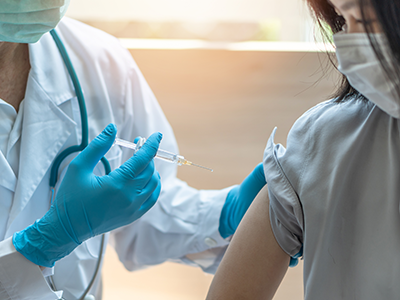


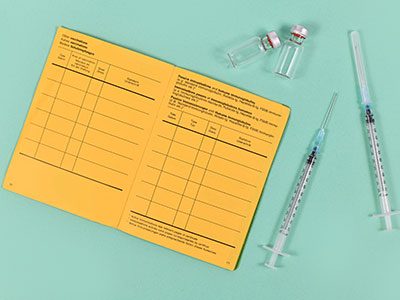






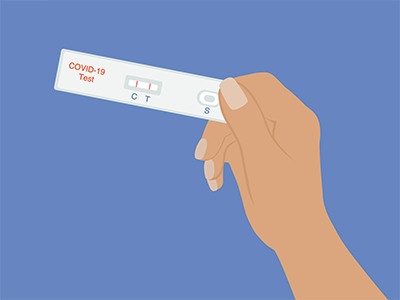
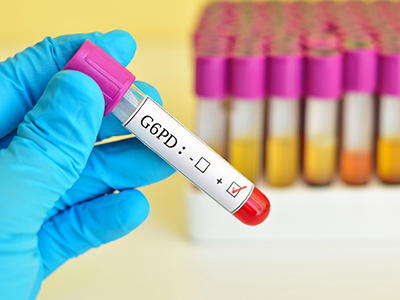


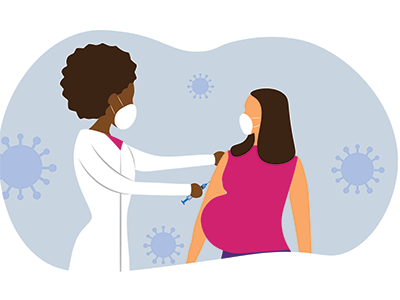
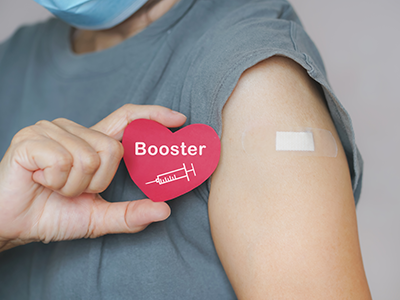
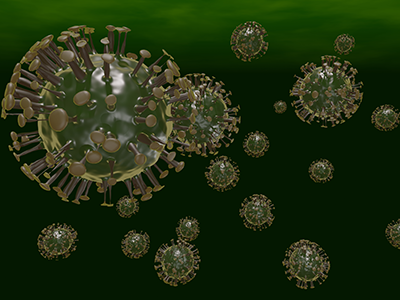
Leave a Comment
Want to join the discussion?Feel free to contribute!